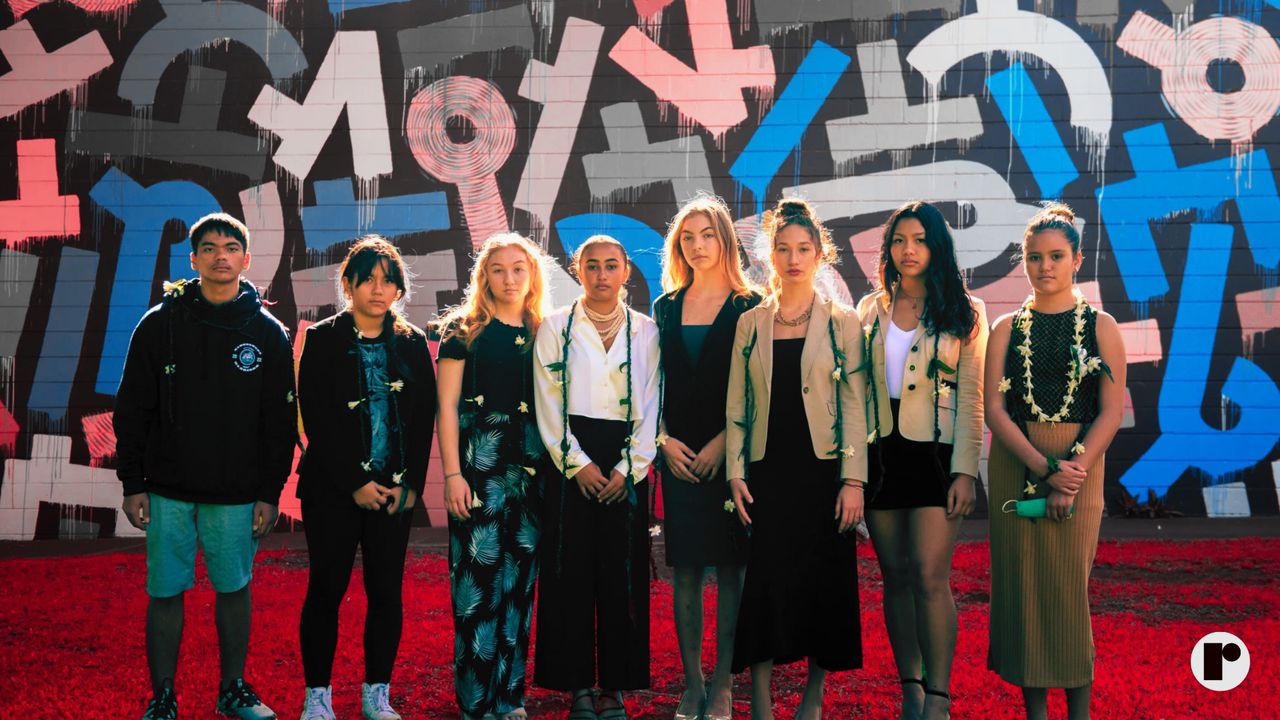After landmark climate victory in Montana, eyes turn to indigenous youth in Hawaii
A day after wildfires ripped through a historic town on Maui, killing at least 111 people, a Hawaiian court gave the green light for a landmark environmental case brought by 14 indigenous children to move forward to a full trial next summer.
The children, who are as young as ten years old, allege that the Hawaiian Department of Transport (HDOT) is violating their constitutional right to a clean and healthful environment. They believe the department ignores the state’s goal of achieving a zero-emissions economy by 2045.
”The transportation system is the next frontier in terms of really getting a handle on greenhouse gas pollution and affecting the kind of transformative systemic change that we need to avert climate disaster,” said Isaac Moriwake, a managing attorney for the environmental legal non-profit Earth Justice and lead attorney in the trial against the HDOT.
Greenhouse gases from transportation account for about 29% of all carbon emissions in the United States, according to the Environmental Protection Agency.
The case is part of an international climate movement led by Our Children’s Trust, a nonprofit public interest law firm based in Oregon. It is part of what was once seen as an insurmountable fight against government support for coal, oil, and gas burning that has warmed the planet and caused unpredictable and deadly disasters.
The organization has current cases in Canada, India, Mexico, Pakistan, and Uganda. However, it has also supported dozens of cases in the United States. Last week, it was handed one of its highest-profile wins when 16 children in Montana proved that their home state violated their constitutional rights by failing to consider climate change when approving fossil fuel projects.
Only a handful of states offer such constitutional protections to their citizens, and are often referred to as green amendments.
But as the United States and other major governments set ambitious climate goals, environmental legal cases are apparently being seen in a different light, and the victory in Montana is being viewed as a valuable guide of how to win.
“The Judge’s detailed and carefully worded decision and the case presented by the 16 children can serve as a template,” said Maya van Rossum, a leading environmental advocate, riverkeeper, attorney, and expert on green amendments. “I could imagine lawyers looking to that language and referring to it in their legal briefings or looking to it as to how they can best present their climate arguments moving forward.”
Now all eyes are on the case in Hawaii.
Here are five things to know about the case and its related issues.
1. When it reaches trial, it will be only the second youth-led climate trial in U.S. history after the victory in Montana.
Other youth-led climate cases have not gone to trial and some may never. The most prominent example is Juliana vs. The United States out of Oregon. The 21 youth plaintiffs, some of whom will be adults now, allege that the U.S. government, through its affirmative actions in promoting fossil fuel development and its failure to address climate change, has violated their constitutional rights to life, liberty, and property. The case has been in the court system for nearly a decade, and attorneys working under the Obama and Trump administrations have sought to have the case dismissed several times.
The case is groundbreaking in its approach to climate change as a constitutional issue. If successful, it could require the federal government to develop and implement a plan to phase out fossil fuel emissions and draw down excess atmospheric CO2.
2. It will also be the first indigenous youth-led climate trial in U.S. history.
All the plaintiffs are indigenous to Hawaii. There has undoubtedly been youth involvement in Native American environmental cases, although very few make it to trial, and this will be first led by children.
3. This isn’t Hawaii’s first high-profile climate case.
The County of Maui, where deadly wildfires recently devastated the historic town of Lāhainā, is suing Exxon, Chevron, BP, Shell, and other fossil fuel companies for concealing the damage that fossil fuel extraction has had on the world. The case was launched in 2020 and is still slowly going through the court system. The defendants in the case are currently trying to have the case dismissed.
4. Montana, New York, and Pennsylvania are the only states to have specific constitutional protections for a clean, safe, and healthy environment for all people.
Hawaiians don’t have precisely the same constitutional right. Still, its constitution notes that the state and its political subdivisions are responsible for conserving and protecting the state’s natural beauty and natural resources.
5. Over a dozen other states are considering adding green amendments to their constitution, making it easier for citizens to bring environmentally-focused legal action against the state.
This could be viewed as a de facto way to stop fossil fuel companies from continuously polluting the environment without taking them directly to court, often an expensive and years-long process.
